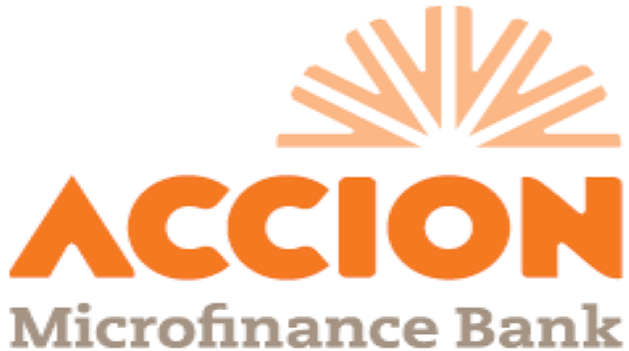E-Financial
The Wirecard Scandal, Lesson for Africa’s Fintech and Regulators

By Emmanuel Okoegwale,
A Television documentary titled ‘Skandal! Bringing Down Wirecard’ caught my attention on Netflix during the weekend. Years back, I had met an executive of the firm when He attended, our annual payment conference in Lagos, Nigeria and was seeking partnership opportunities in Africa.

Much later, the news of their troubles sufficed but the circumstances surrounding it, was unclear till recent disclosures.
Wirecard which had a market capitalization of 24B euros at its peak in 2018, licked the dust in a significant way, judging from itself size and status in German, a country known for its very effective and efficient government machinery so what went wrong?
The story line looks like a well-established, formidable and innovative German payment processor with operations in some other parts of the world, was built on a scheme, set up to pull the wool over the eyes of their own government, regulators, investors and the public.
For some years, the media and the telescopic scrutiny of brutal short sellers (investor who profits when the valuation of a company goes down in value) latched on to wirecard’s trail with some painstaking investigation to establish some wrong doings but it appeared that the German financial watchdogs built a ‘ringfence’ around their iconic payment company, for years. With unrelenting attacks, Wirecard catapulted in June 2020.
The management disclosed that €1.9 billion was “missing” in its book which was previously reported as held with two Philippines Banks but the banks denied it. The shares of company tumbled down by over 72%. The damage from a short-seller’s barrel can be very brutal. JUMIA is still recovering from the damage from a lone wolf short seller’s attack on their NYSE IPO.
Though short sellers are unnecessary irritants to financial services regulators and how did the German financial markets watchdog BAFIN, allowed repeated reports from foreign jurisdiction with classified information, whistle blowers reports go untreated severally?
Some of the accusations
In financial services world, market operators can work with offshore partners and third-parties where there is license limitation, lack of operational base etc and earn a commission.
It’s not an illegal business activity in many jurisdictions but for some reasons, these offshore commissions were a major chuck of the revenue of wirecard and they are coming majorly from three partners, that looked alike in their business presentation, operations etc but in reality are extremely small business entities which raised the question of the legality of the volumes of cash coming from those sources and the resultant ‘padding’ of their books.
Some far-reaching proposals had been tabled to address and prevent future occurrences such as mandatory auditor’s report to the finance ministry in reporting irregularities, change of market operator’s auditors every ten years, intervention of the of the financial regulator based on suspicion of irregularities etc.
A regulator’s job is to create market certainty and appropriate risk but in the case of wirecard, the German financial watchdogs dropped the ball. Due to missteps of a single market operator, it will take a while for Germany watchdogs to build back the confidence that people have in their financial services market, judging from the possibility of future revelations that may be presented in court during the trail of the arrested top executives.
There is a national systemic risk and contagion effect if national regulators don’t step-up their role as gatekeepers for financial technology firms with local and offshore operations.
Emmanuel Okoegwale is a digital finance specialist based in Lagos – Nigeria Emmanuelok2007@gmail.com
E-Financial
Zenith Banks Leads as 8 Banks Suffer N156Bn Impairment Charges

Eight leading Nigerian banks collectively set aside N156 billion as impairment charges on their credit and financial assets, marking a significant financial impact amidst a challenging economic environment, in the opening quarter of 2025.

Known commonly as loan losses or credit impairments, these charges highlight the banks’ defensive measures against risks arising from inflation, naira depreciation, and tightened liquidity affecting consumers and businesses alike.
The level of impairment varied considerably across institutions, reflecting divergent risk appetites and credit management practices.
Zenith Bank led with the highest provision of N49.38 billion, an 11.8 percent reduction from the previous year’s N55.97 billion.
This decline may suggest enhanced asset quality or more rigorous loan recovery tactics.
Broken down, loans and advances contributed N35.95 billion to impairments, while investment securities and treasury bills added N7.1 billion and N2.16 billion respectively.
Despite heavy provisioning, Zenith recorded a notable 20.7 percent increase in post-tax profit, soaring from N258.34 billion to N311.83 billion.
Similar trends emerged at First HoldCo, which posted N37.25 billion in impairment (down 11.2 percent), driven mainly by loans and advances provisions of N41.23 billion.
Offsetting this were write-offs and reversals that mitigated losses.
First HoldCo’s profit, however, fell to N171.10 billion from N208.11 billion.
Access Holdings and Guaranty Trust Holding Company also demonstrated reduced impairment charges, indicating stronger credit monitoring.
Access’s net provision dropped 4.5 percent to N21.77 billion, while Guaranty Trust’s impairment stabilized near last year’s N13.42 billion figure.
Yet, Guaranty Trust’s profit plunged 43.6 percent to N258.03 billion, a striking contrast to other banks’ profit growth.
On the other hand, United Bank for Africa (UBA) faced a staggering 332.2 percent surge in impairment, from N3.28 billion to N14.18 billion—pointing to amplified credit risks possibly driven by external economic pressures.
Nonetheless, UBA recorded a 33.1 percent profit uptick to N189.84 billion.
FCMB’s impairment charge fell notably by nearly 60 percent to N9.52 billion, aided by significant recoveries of previously written-off loans, boosting its profit to N32.23 billion.
Meanwhile, Fidelity Bank and Wema Bank posted sharp rises in impairment—285.8 percent and 64.7 percent increases respectively—reflecting heightened write-downs that underscore growing risk exposure amidst portfolio expansions.
Overall, while the cumulative impairment charge diminished by 5.2 percent compared to Q1 2024, individual bank results were mixed, embodying the varied strategies and external pressures in Nigeria’s banking sector.
E-Financial
SEC Flags FF Tiffany as Ponzi Scheme

Securities and Exchange Commission (SEC) has revealed plans to commence investigation into the activities of an entity operating under FF Tiffany, allegedly running a fraudulent investment scheme that has defrauded citizens.

A statement by SEC on Tuesday in Abuja said preliminary information revealed that the scheme, which promised investors unusually high and unrealistic returns, had resulted in the loss of several billions of naira.
The SEC said it viewed the activity as a threat to investor confidence and the overall integrity of the financial system.
The commission assured the public that it was working closely with law enforcement agencies and other relevant bodies to bring everyone involved in the unlawful operation to justice.
According to SEC, those found culpable will be prosecuted in accordance with Investment and Securities Act (ISA) and regulatory provisions.
SEC reiterated its earlier warnings to the general public to desist from engaging in Ponzi or unregistered investment schemes that promised guaranteed or exaggerated returns.
”These schemes are not registered with the SEC and do not offer investor protection under the law.
“The commission is currently investigating 79 schemes and will make a statement on its findings at the conclusion of the investigation,” the SEC said.
The commission encouraged investors to conduct due diligence and verify the registration status of any investment firm or product by visiting the SEC website or contacting the commission directly through official channels.
SEC said it remained committed to its mandate of protecting investors, ensuring fair practices, and maintaining confidence in Nigeria’s capital market.
E-Financial
AccionMonie App to Empower Low-Income Households

Accion Microfinance Bank has unveiled AccionMonie, a next-generation digital financial services platform aimed at empowering individuals, micro, small, and medium enterprises (MSMEs), as well as low-income households across Nigeria.

Speaking at the official launch in Abuja, Chief Executive Officer of Accion MfB, Taiwo Joda, described the introduction of AccionMonie as a significant milestone and a testament to the bank’s culture of innovation, designed to meet the evolving needs of its customers.
“At Accion Microfinance Bank, we believe in the potential of every MSME to drive inclusive economic growth. That is why we are committed to empowering them with the financial support they need to grow, innovate, and make a lasting impact in their communities and beyond,” Joda said.
He added that the app provides instant access to essential services including loans, savings, and other forms of financial support.
According to Joda, AccionMonie is a strategic component of the bank’s “Always There to Lend You a Hand” campaign, which underscores its commitment to small business development and the economic upliftment of underserved households. The campaign positions Accion MfB as not only a financial institution but also a trusted partner in its customers’ journey to prosperity.
Highlighting the economic role of MSMEs in Nigeria, he noted that with an estimated 37 million MSMEs, the sector accounts for 86% of employment and contributes 48% to Nigeria’s Gross Domestic Product (GDP). However, these enterprises continue to face major challenges such as limited access to finance, inadequate infrastructure, and an unfavourable business environment.
Also speaking at the launch, the bank’s Chief Commercial Officer, Stephen Olalere, said the combination of AccionMonie and the bank’s expansive network of over 74 branches across 12 states will help bridge the gap in financial service delivery to small businesses.
“The platform’s user-friendly features are designed to simplify payments and offer vital support to businesses and individuals alike,” he said.
Paul Ehiagbonare, Chief Digital Officer of the bank, described the launch as a bold step toward digital leadership and financial empowerment.
“For us, AccionMonie reflects customer empowerment through digital tools and technologies. It offers a range of customer-focused features designed to promote financial inclusion,” he said.
One of its standout features is Save2Loan, which allows users to save between ₦50,000 and ₦250,000 over a 90-day period and become eligible for a loan worth twice their saved amount. This, Ehiagbonare explained, will help promote a savings culture while enhancing credit access.
In addition, customers can conveniently fund their AccionMonie accounts using any debit card, eliminating the need for physical visits or long queues in banking halls.

 Broadcasting3 days ago
Broadcasting3 days agoNigeria Week Ahead: Inflation, Oil and Naira in focus

 News3 days ago
News3 days agoEFCC: Accusations Against Our Chairman Are Baseless and Misleading

 Telecom2 days ago
Telecom2 days agoNCC Introduces N10m Licence Fee for Bulk SMS Service

 Telecom2 days ago
Telecom2 days agoMTN Nigeria Targets $1Bn Cloud Market with Largest Modular Data Centre

 General News2 days ago
General News2 days agoWoodhall Capital and Partners Launch ₦1.5Bn Fund

 E-Business2 days ago
E-Business2 days agoFirm Highlights Top Risks of Quantum Computing

 General News2 days ago
General News2 days agoBurna Boy Distances Himself from Meme Coin, Labels Crypto as Fraud

 Telecom2 days ago
Telecom2 days agoPAT Taps Osi as CEO



























